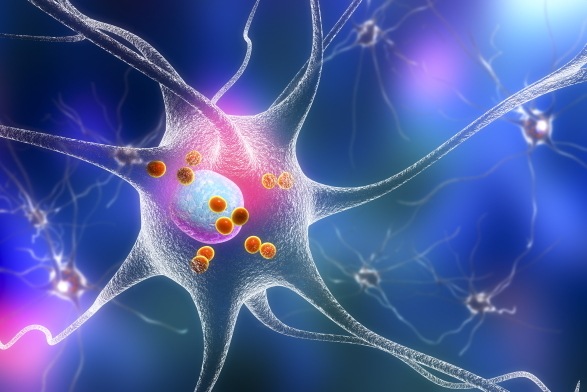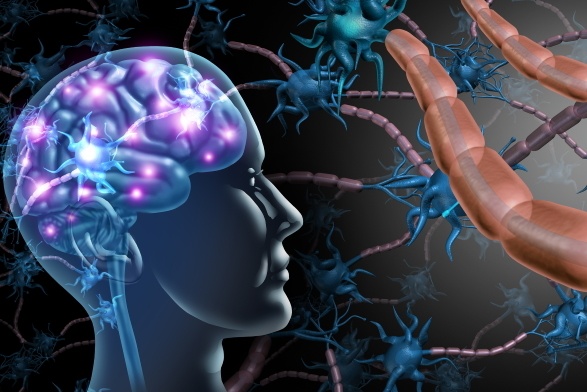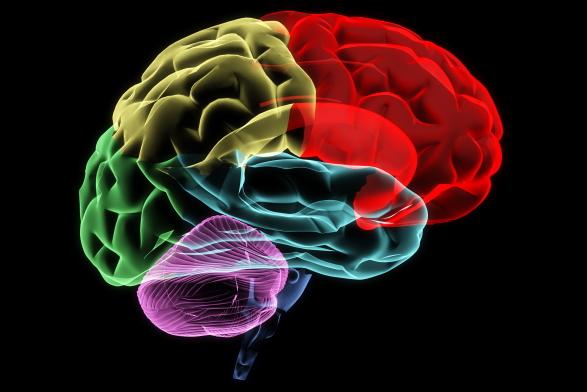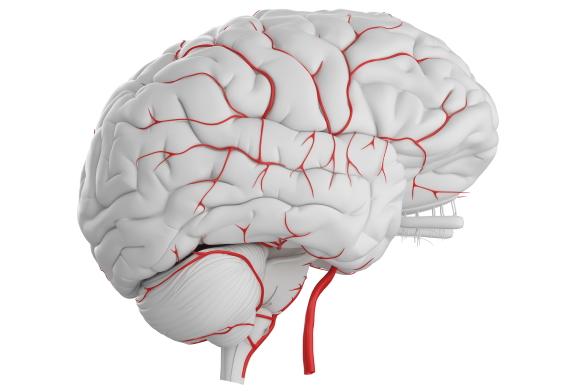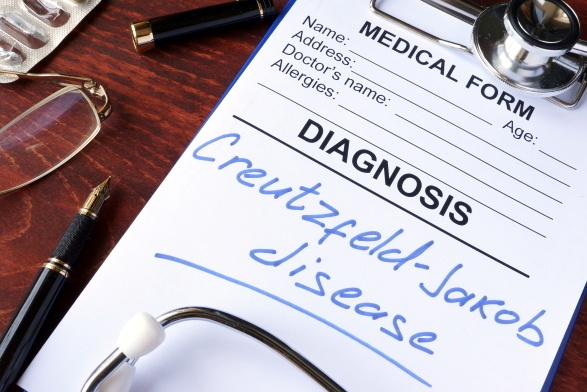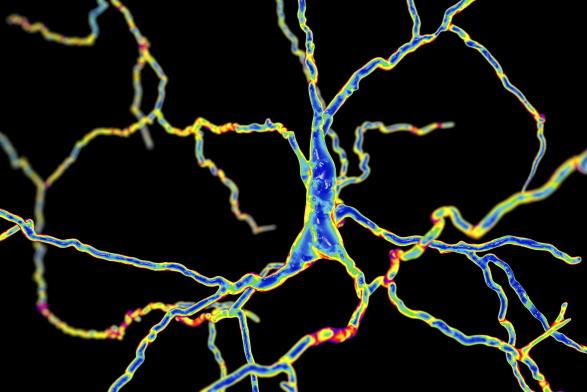Alzheimer's & Dementia FAQs
As you and your loved one begin the Alzheimer's journey, we know that the options and services and programs can seem a little overwhelming. We've put together the most common questions we get in the FAQs below but, as always, please do not hesitate to contact us with further questions. We're here to help!
Questions About Alzheimer's Disease
What is dementia?
Dementia is a syndrome (set of symptoms) characterized by a gradual decline in mental abilities, such as memory, personality, behavior and thought. Dementia symptoms can be caused by any number of different diseases, including Alzheimer's disease, Parkinson's disease and Vascular Dementia. When a person exhibits signs of dementia, further medical evaluation is warranted to distinguish what type of dementia he/she may be experiencing, as well as to rule out potentially treatable/reversible causes of cognitive decline, such as vitamin deficiency, thyroid imbalance or depression.
What is Alzheimer's disease?
Alzheimer's disease is one condition that causes dementia. Decline in short-term memroy is commonly an early symptom, with loss of other mental abilities, such as judgement, decision-making ability, self-control, insight and language skills increasing over time. Alzheimer's disease is a physical disease process, characterized by plaques and tangles in the brain of the affected person. Current treatments may delay the progression of symptoms, but do not stop or reverse the underlying disease process.
What are some of the early signs that someone may be experiencing Alzheimer's disease or another form of dementia?
Some early warning signs of Alzheimer's disease include:
- Memory loss, particularly for recent events;
- Difficulty with complex tasks that were once routine, such as managing finances;
- Personality changes;
- Changes in language skills, such as difficulty in finding the right word when speaking.
- Individuals with early-stage dementia or Alzheimer's disease often appear 'normal' at first, but their deficits may interfere with their ability to perform certain tasks and follow daily routines.
What are common symptoms as the disease progresses?
Over time, dementia symptoms become more severe, and the person becomes more dependent upon a caregiver for assistance with activities of daily living.
Memory impairment becomes more pronounced, and the person may experience disorientation to place and/or time.
Increasing language difficulties, impaired ability to perform skilled movement, loss of inhibition and restlessness often occur.
Behavioral changes and/or agitation may take place.
Over time, physical manifestations, such as difficulty with coordinating movements and difficulty swallowing, occur.
What can people living with Alzheimer's disease and related dementia do to improve quality of life?
There are many things that people with dementia can do to enhance their daily lives. Programs and services exist to help the affected individual find opportunities for enjoyment, mental activity and social connection. Caregiver services can be invaluable to family members seeking information, support, resources and respite. For more information, contact the Long Island Alzheimer's and Dementia Center.
Simple Tips for Daily Tasks
Reduce frustrations
A person who has Alzheimer's might become agitated when once-simple tasks become difficult or impossible. To limit challenges and ease frustration:
- Schedule wisely. Establish a routine to make each day more predictable and less confusing. Schedule the most difficult tasks, such as bathing or medical appointments, for the time of day when your loved one tends to be most calm and agreeable.
- Take your time. Expect things to take longer than they used to. Schedule more time to complete tasks so that you don't need to hurry your loved one.
- Involve your loved one. Allow your loved one to do as much as possible with the least amount of assistance. For example, perhaps your loved one can dress alone if you lay out the clothes in the order they go on.
- Limit choices. The fewer the options, the easier it is to decide. For example, provide two outfits to choose between — not a closet full of clothes. Eliminate belts or accessories that are likely to be put on incorrectly.
- Provide simple instructions. When you ask your loved one to do something, do it one step at a time.
- Reduce distractions. Turn off the TV and minimize other distractions at mealtime and during conversations so that your loved one can better focus on the task at hand.
Be flexible
Your loved one's ability to function and cope will steadily decline. It might even vary from day to day. Try to stay flexible and adapt your routine as needed.
For example, if a favorite food suddenly becomes unappealing to your loved one, adjust the menu. If your loved one starts insisting on wearing the same outfit every day, consider buying a few identical outfits. When your loved one is bathing, switch the worn outfit for a clean one.
You might also relax your standards a bit. Bathing, for example, might not be necessary every day — especially if it's upsetting for your loved one. Try sponge baths between showers or tub baths.
Create a safe environment
Alzheimer's disease impairs judgment and problem-solving skills, increasing your loved one's risk of injury. To keep your loved one safe:
- Prevent falls. Avoid scatter rugs, extension cords and any clutter that could cause your loved one to trip or fall. Install handrails or grab bars in critical areas.
- Use locks. Install locks on cabinets that contain anything potentially dangerous, such as medicine, alcohol, guns, toxic cleaning substances, dangerous utensils and tools.
- Check water temperature. Lower the thermostat on the hot-water heater to prevent burns.
- Take fire safety precautions. Keep matches and lighters out of reach. If your loved one smokes, make sure he or she does so only with supervision. Make sure a fire extinguisher is accessible, and the smoke alarms have fresh batteries.
Focus on individualized care
Each person who has Alzheimer's will experience its symptoms and progression differently. Consequently, caregiving techniques need to vary. Tailor these practical tips to your loved one's individual needs.
Remember, your loved one's responses and behaviors might be different from what they used to be. Patience and flexibility — along with good self-care and the support of friends and family — can help you deal with the challenges and frustrations ahead.
Early Stage Alzheimer's Disease
Understanding early stage Alzheimer’s disease can help you and your family properly prepare for the future. While everyone experiences Alzheimer’s differently, the beginning stage of this disease can progress for several years. Alzheimer’s disease starts well before any of the symptoms are apparent, which is detectable through new brain imaging technology. Your role is to help your loved one plan for the future.
Signs of Early Stage Alzheimer’s Disease
If your loved one is in the early stage of Alzheimer's disease, it may interfere with their ability to perform daily routine and complete certain tasks. They may exhibit one or more of the following symptoms:
Declines in Hygiene May Manifest Itself As:
- Becoming untidy in appearance; failing to groom appropriately
- Forgetting to bathe regularly, or becoming resistant to personal hygiene tasks
Difficulty with Routines May Manifest As:
- Difficulty handling household responsibilities, such as balancing the checkbook or preparing a meal
- Difficulty organizing the steps involved in completing complex tasks
- Forgetting what has already been done and what hasn’t
Disorientation Can Manifest Itself As:
- Becoming lost in familiar places
- Difficulty following directions
- Difficulty keeping track of dates and appointments
Language Difficulties May Manifest As:
- Difficulty finding the right words when speaking
- Difficulty recalling names
- Calling objects or people by the wrong name
- Difficulty with written language
Memory Loss May Manifest As:
- Asking repeated questions
- Telling the same story multiple times
- Misplacing things
Personality Chances May Manifest As:
- Becoming more mellow or withdrawn
- Becoming more easily irritated or agitated
- Becoming more self-centered or inconsiderate of others
What Can Caregivers Do for Early Stage Alzheimer’s Disease?
If your loved one is diagnosed with early stage Alzheimer’s disease, it doesn’t just affect them; it affects you and everyone who loves them. During this stage, many people consider themselves as a care partner because someone with early stage Alzheimer’s disease may not need as much assistance.
Fortunately, an early stage diagnosis means you and your loved one may still be able to have conversations about the future together. Long Island Alzheimer's and Dementia Center is here to offer support, information, and answer your questions including:
- Financial conversations
- Legal conversations
- Long-term care planning
- Possible participation in clinical treatments
- Potential available treatments
By having these conversations now, you may be able to reduce the anxiety about the future, which can lead to better understanding of what's important to you and your family.
Defining and Finding a New Balance
One of the biggest challenges caregivers or care partners face is not knowing the adequate level of assistance to provide. Your ability to provide support where needed may be valuable in helping your loved one develop additional coping strategies, which can help maximize their independence.
Although all relationships are different, striking a balance between independence and interdependence can help increase confidence for you and your loved one with Alzheimer’s. Use the following tips to help strike a balance and learn when your assistance is needed.
- Have Conversations: The most effective way to determine when and where to provide support is to ask your loved one directly. Look to understand the frustrations they may experience and make a plan.
- Keep Safety First: Is your loved one at risk for injuries when they perform particular tasks alone? If no immediate risk exists, you should encourage them to independently complete the task under your supervision.
- Minimize Stress: Prioritize actions or tasks that do not result in additional stress. For instance, if you recognize balancing the checkbook causes additional stress, make sure you’re able to provide the necessary assistance and encouragement.
- Stay Positive: Instead of assuming your loved one can’t do something, you should assume they can effectively complete the task. If you notice frustrations, recognize the cause of the angst prior to intervening.
- Work Together: Discover tasks and activities you can do together and continue the conversation about how you’ll provide support. Continually check in by asking your loved one if your assistance level is adequate or comfortable for them.
- Create Signals for Help: Create a phrase or signal that your loved one can use to signal for help. It’s about creating a sign your loved one is comfortable with, so they can signal when they need assistance. In the end, the goal is to help your loved one retain their independence.
Moderate Stage Alzheimer's Disease
According to research conducted by the Mayo Clinic, middle or moderate stage of Alzheimer’s disease can last for several years and is typically the longest stage. As the Alzheimer’s progresses, your loved one will undoubtedly require a greater level of care and support. It's equally important for you as the caregiver to get the support you need. And the Long Island Alzheimer's and Dementia Center is here to help every step of the way.
What to Expect in Moderate Stage Alzheimer’s Disease?
During the moderate stage of Alzheimer’s disease, your loved one may have difficulty performing routine tasks and expressing their thoughts due to significant changes to their brain. It can be troubling to watch the one you’ve loved and the person who has possibly cared for become less independent. Your loved one may become even more dependent on you for care and assistance with daily living activities. A person with moderate Alzheimer’s disease may exhibit the following symptoms:
Memory Impairments May Manifest As:
- Very poor memory for recent events, for example completing a meal and then saying, “When do we eat?”
- Incorrectly remembering events, for example mixing up details of multiple stories or making up the details to fill in the blanks in his or her memory (confabulation)
Disorientation to Places, Times, or People May Manifest As:
- Not knowing the name or relationship of a close relative, for example, a man calling his wife his mother
- Behaving as if he or she were living in the past, for example:
- Getting ready for work in the morning, even though he or she has been retired for many years
- Looking for young children, even though their children are grown
- Looking for relatives who are deceased
- Increased difficulty performing skilled movement like:
- Difficulty using eating utensils at a meal
- Inability to operate machinery, such as a washing machine or oven
- Inability to tie shoelaces, fasten a bra, button shirts, or zip pants
Difficulties with Language May Manifest As:
- Needing more time and effort to express oneself
- Difficulty finding words or misusing words (aphasia)
- Speech that does not make sense or is difficult for others to understand
Loss of Inhibitions May Manifest As:
- Making inappropriate comments or jokes
- Using swear words or other vulgar language
- Behaving in a sexually provocative way
- Attempting to undress in public
Agitation Can Show up As:
- Anger or anxiety related to:
- Inability to express needs
- Being faced with an overwhelming or confusing situation
- Verbal outbursts
- Physical outbursts
Wandering, Pacing, Fidgeting, or Restlessness May Manifest As:
- Being unable to sit still
- Wandering or pacing around the house
- Wandering off and becoming lost
Problems Sleeping Can Cause:
- Increase or decrease in sleepiness and amount of sleep
- Mixed up day-night sleep cycle
Social Withdrawals May Manifest in Scenarios Like:
- Feeling awkward in group situations, especially when with others who do not have memory impairment
- Becoming increasingly dependent upon the caregiver. The caregiver becomes a “security blanket.”
Increased Need for Assistance and Supervision May Manifest As:
- Requiring assistance with day-to-day tasks, such as bathing or dressing
- Needing prompts to perform daily activities
- Requiring supervision much of the time
Increased Late-Day Confusion or Sundowning May Result in:
- Increased confusion in the evenings
- Wanting to “Go Home” when in one’s own home
Delusions or Hallucinations May Manifest As:
- Seeing or hearing people or things that are not there
- Mistaken but firmly held beliefs that are not based in reality – may be paranoid in nature
Changes in Eating Habits May Manifest As:
- Erratic eating
- Forgetting to eat
- Forgetting they've eaten and eating again
- Weight loss or weight gain
What Can Caregivers Do for Moderate Stage Alzheimer’s Disease?
Caring for a loved one with moderate stage Alzheimer’s disease requires patience and flexibility. As a caregiver, you'll need to take on more responsibilities. Their daily routines may need to be adapted to accommodate the new reality, and a new structure will become even more important.
As you gain more and more experience caring for your loved one, it is important to for you to develop strategies to cope. The healthier you are, the better level of understanding, patience, and care you can provide.
A few tips you can use include:
- Avoid isolating yourself and research respite services available through Long Island Alzheimer's and Dementia Center in your community.
- Don’t turn down friends and family members’ offers for assistance.
- Research all of your options along the journey of paying for long-term care
- Use a calm voice whenever responding to your loved one’s repeated questions
- Make it a point to educate yourself on what to expect in moderate stage Alzheimer’s disease
- Instead of responding to the specific question, respond to the emotion. In many instances, your loved one needs reassurance.
- If your loved one is still able to read, use simple written reminders to provide guidance.
- Stay up to date on any medication side effects or physical problems.
Late Stage Alzheimer’s Disease
The late stage of Alzheimer’s disease is the final stage, and it can last anywhere from several weeks to several years. Due to the progressive nature of the disease, your loved one may require continuous, intensive, around-the-clock care. During this stage, your loved one may lose the ability to express their needs and talk, but most recent research suggests some of their core self still remains.
What to Expect in the Late Stage of Alzheimer’s Disease?
In late stage Alzheimer’s disease, your loved one will most likely become completely dependent on you for several aspects of life. Those with late stage Alzheimer’s disease may exhibit the following symptoms:
Severely Impaired Memory May Manifest As:
- Very little to no short term memory
- Very impaired long-term memory
Communication Problems May Manifest As:
- Inability to speak or severely impaired speech
- Impaired ability to understand language
Complications Recognizing People May Manifest As:
- Inability to recognize one’s spouse and family
- Not recognizing oneself in the mirror
Requiring Additional Assistance Can May Manifest:
- Needing help with all activities of daily living
- Need for constant supervision
Problems with Nutrition and Remembering How to Eat May Manifest As:
- Difficulty coordinating the steps of biting, chewing, and swallowing
- Weight loss
Complications Coordinating Movements May Manifest As:
- Unsteady gait
- Fumbling when grasping for objects
- Difficulty holding on to objects
Increased Frailty May Manifest As:
- General weakness
- Increased susceptibility to infection and other physical illnesses
Other Symptoms May Include:
- Loss of bladder control
- Loss of bowel control
- Upset sleep cycle.
What Can Caregivers Do for Late Stage Alzheimer's?
At this stage, you may still be able to connect with your loved one throughout the disease. Since they experience their world through senses, you can express your love and care through sight, sound, touch, taste, and smell. For instance, you may find favorable results by:
- Rubbing your loved one’s favorite scented lotion on their skin
- Reminiscing and looking at older photos together
- Playing your loved one’s favorite music
- Reading portions of books with a deeper emotional meaning
- Cooking their favorite food
- Brushing their hair
Remember, the Long Island Alzheimer's and Dementia Center is here for you along every step of the way.
Long-Term Care Needs for Late Stage Alzheimer’s Disease
Deciding on late stage care can be one of the most trying decisions you and your family will face. Most of the families we’ve worked with tell us it’s better to collect information and continue forward – instead of second guessing.
If possible, we suggest you have this conversation with your loved one in the earlier stages. By learning their wishes, you'll be better prepared to make the tough decisions. Keep in mind, there are good ways to provide quality care for your loved one.
If you’re unable to provide the around-the-clock care, support, and attention they need; you and your family may be best suited to find this care outside of the home. The decision is about ensuring your loved one receives the best level of care.
If you decide a long-term care facility is the best solution for your loved one, the experts at Long Island Alzheimer's and Dementia Center can help. We'll provide guidance and assistance to help you make the best decision for your loved one's care, for yourself, and for your family. We are here for you every step of the way.
For more information about LIAD Center’s Day Programs, please contact Gia Mannone, Director of day Program Services, at 516-767-6856 x17 or gmannone@lidementia.org.
Types of Dementia
Contrary to popular belief, there are several types of dementia: it's not a single disease. Dementia is a broad term used for a specific set of conditions and diseases that are characterized by a decline in problem-solving, language, and — most notably — memory.
Dementia can also affect an individual's ability to complete normal, everyday activities. While Alzheimer's disease is the most common type of dementia, there are several other types. The following information provides a brief overview of the different types of dementia.
As the most common type of dementia, anywhere from 60% up to 80% of cases are the result of Alzheimer’s — according to the Alzheimer's Association. Seniors have a higher likelihood of developing Alzheimer's. In contrast, only 5% of Alzheimer's cases are early onset or occur in those in their 40s or 50s. This irreversible, progressive brain disorder slowly deteriorates thinking and memory skills, eventually causing the individual to be unable to carry out simple tasks.
Lewy body dementia (LBD) or dementia with Lewy bodies is typically associated with abnormal deposits of alpha-synuclein brain protein. These deposits — Lewy bodies — interrupt chemical messages in the brain, which can lead to problems with mood, movement, behavior, and thinking. Individuals with LBD may share similar symptoms as those with Alzheimer's and Parkinson's.
Frontotemporal dementia is a moniker that is used to group several types of dementia that affect the side and front parts of the brain. These areas are responsible for controlling behavior and language. Also known as Pick's disease, frontotemporal dementia can impact individuals as young as 45. Two examples include Frontal Lobe dementia and primary progressive aphasia.
Wernicke-Korsakoff syndrome (WKS), is a neurological disorder caused by a substantial Vitamin B Thiamine deficiency, which can cause lower sections of the brain to bleed. Vitamin B plays a critical role in metabolizing glucose to create energy for the brain. WKS can result in loss of muscle coordination, double vision, and other physical symptoms. At some point, the physical symptoms of Wernicke's disease end, and then the signs of Korsakoff syndrome will appear. These symptoms often include complications learning new skills, processing information, remembering things, and other dementia-like symptoms.
Normal pressure hydrocephalus (NPH) is a condition highlighted by the accumulation of cerebrospinal fluid that causes the brain's ventricles to enlarge. The ventricles are fluid-filled spaces used to cushion the spinal cord and brain. They rely on a precise amount of fluid to function properly. If this fluid builds up excessively, it places additional pressure on the brain, which can lead to dementia like symptoms. An estimated 5% of all cases of dementia are the result of normal pressure hydrocephalus according to Johns Hopkins Medicine.
Vascular dementia is the second most common type of dementia. This condition is the result of the blood flow to the brain being restricted. Vascular dementia can be related to stroke or atherosclerotic disease and tends to occur with age. The symptoms of this disease can begin suddenly or appear over time based on the underlying cause. The most common early signs are disorientation and confusion; while concentration problems or complications completing tasks can appear in the later stages.
Parkinson's disease is a progressive disorder of the nervous system that may affect movement. Many people who have advanced Parkinson's develop dementia. Some of the earliest signs of Parkinson’s may be barely noticeable tremors in one hand. Although tremors are common, Parkinson's can also cause slowing movement or stiffness.
As one of the rarest forms of dementia, Creutzfeldt-Jakob disease (CJD) is a fatal degenerative brain disorder. The Alzheimer's Association suggest only 1 in 1 million people are diagnosed with this disease annually. Early symptoms can include visual disturbances, behavioral changes, poor coordination, and memory problems. Later symptoms include dementia, blindness, coma, weakness, and involuntary movements.
Mixed dementia explains the diagnosis that is made when the individual suffers from more than one type of dementia. The most common type of mixed dementia is Alzheimer's and vascular dementia. Because of the complexities of mixed dementia, the symptoms can vary.
As a genetic disease, Huntington's disease is fatal and results in the degeneration of the brain's nerve cells. Two different types of Huntington's disease exist: juvenile and adult onset. The juvenile type of Huntington's disease is rare and can cause symptoms to appear in an individual's childhood or adolescence. On the other hand, the adult form can first cause symptoms to appear when they are in their 30s or 40s. It deteriorates a person's mental and physical abilities — typically during their prime working years.
Post cortical atrophy (PCA) — also recognized as Benson's syndrome — is a very rare, visual type of dementia and Alzheimer's disease. It typically affects the back part of the brain that is responsible for spelling, spatial perception, complex visual processing, and calculation.
Contact Long Island Alzheimer's and Dementia Center
At Long Island Alzheimer's & Dementia Center, we help families impacted by Alzheimer's and other forms of dementia. We offer a range of hands-on solutions based on stimulating programs and providing respite for caregivers.
Contact us today to learn more about our services and solutions.


